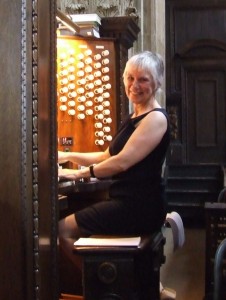Church, an alternative perspective
Many years ago, a college tutor presented me with a copy of the Oxford Book of Twentieth Century English Verse. Not being totally inspired by great literature of any kind, I politely thanked my tutor, flipped through pages of long winded poetry with little enthusiasm, then happened upon two very short poems by Richard Church (1893-1972).
One is entitled The Alchemist, the other, Be Frugal. They spoke volumes and one left its mark. For many years, including having loaned this book and never received it back, I forgot completely about this man’s work. In 1996, on moving to Herne Hill, I discovered a blue plaque on a house nearby to say that Richard Church had lived there. A second blue plaque notes that Sam King, Southwark’s distinguished mayor, also occupied the same house at a different time. It took a few more months to buy another copy of the Oxford Book and to seek other books by this writer. Amazon located a copy of volume one of Mr Church’s autobiography, ‘Over the Bridge’, which charts his life from birth to the age of 17, when he entered a civil service post.
Two curious things may intrigue you as they intrigued me. One was how family members, once they were all old enough to have learned to play music, always played to each other on Saturday evenings. Mum, dad, older brother and our poet all contributed their offerings, playing the same party piece every time, part of the family ritual. Nowadays, very true of many, the urge is to be always learning new repertoire, whether anyone wants to hear it or not. Public consumption of live music is still something we all revel in, such is easy availability of sheet music and better opportunities for ordinary people to have a go. Mr Church’s older brother became a serious player of music, particularly the piano. He persuaded his parents to buy a second one, so that he could extend his repertoire on a much classier instrument (I have always maintained that playing on a really good instrument inspires one to do better). The older brother had other musical instruments too, and this included the organ. He even managed to acquire one and set it up within the house in Herne Hill. The fashion in those days was to play transcriptions of orchestral music, in order that ordinary folk could benefit from hearing it, not least the entire Church family. This trend has returned big time to our concert programmes, and one cannot help but wonder where the trend for new organ music will go next.
The other curiosity was how Mr Church became a poet. As a child, he experienced unhappy schooling. It took several years for everyone to realise how short sighted he was. His descriptions of being able to see things properly for the first time were vivid, and made a huge difference to his confidence and enthusiasm. He could read, write and see colours in glorious detail, but never acquired a liking for maths, following brutal treatment by his maths teachers for making mistakes. He became interested in art and took interest in his brother’s music. One day, a revelation took place. He began to understand the nature of the rhythms of words and the rhythms of music, and his gift for writing poetry began in his teens.
In many past articles, I have written with energy on the importance of rhythm in all our preparations of music for services in church or for recitals. It doesn’t matter what sparks the interest, but what does matter is that correct timing is always observed and practised. You do not need to be a professional musician to understand this, you just have to learn how to do it. Recording yourself is the best guide to learning whether you need to improve or not. Reading about Richard Church and his work reinforced the message for me in a new way.
Marilyn Harper


